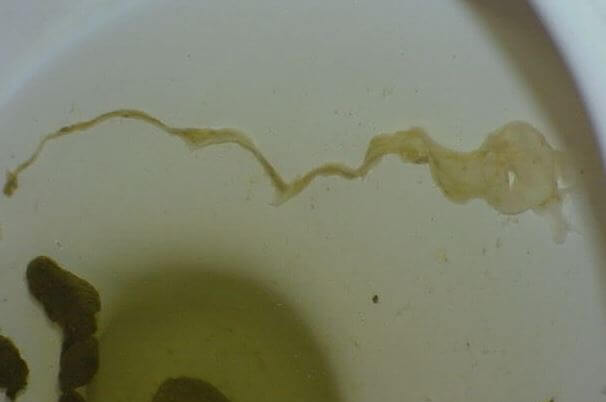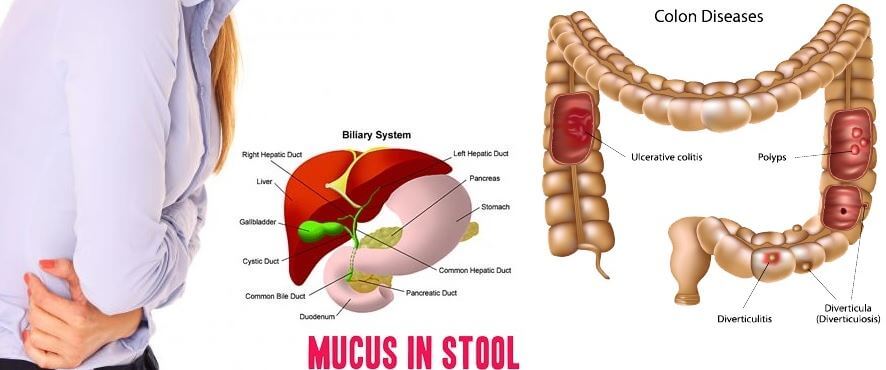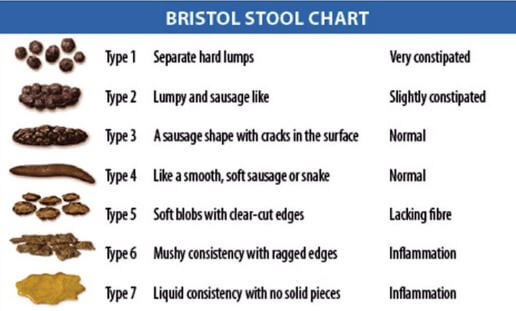What is Mucus In Stool?
Ever wondered where the mucus that is present in some parts of the body come from? The answer is that it is produced by the body to lubricate various organs. This acts to reduce friction and allow tissues to remain moist. The jelly lie product is a secreted from your body, and so it is no probable cause for alarm. However, the production of excess mucus from the body may be a sign of malfunction of some vital body parts.

The presence of mucus on the stool is rampant among many people. In healthy beings, the color of the mucus ranges from clear to the yellowish color of stool. This makes it almost unnoticeable unless there is lots of it. If the mucus is so much that it draws your attention, do not hesitate to visit a physician. This could be a sign of a hidden disease in your body.
An insight into mucus production
Mucus levels are kept stable by the bacteria present in our digestive system. These are responsible for maintaining mucus in proper thresholds. This should not be excessive and must not go below optimum. Any changes notable must be taken seriously so as to determine the severity of the problem. Monitor the signs for any changes for the better or worse, and upon conclusion, you will decide what the best way forward is.
Causes of Mucus in stool
- Ulcerative colitis
- Cystic fibrosis
- Crohn’s disease
- An infection of the ileum
- Failure of the ileum lining to absorb crucial minerals and oils.
During the cold seasons, the human body tends to release a lot of mucus, but this is only restrained to the breathing system. This mucus does not spread to other parts; it only remains within the breathing system.

It is therefore of great importance to take notice whenever you find strange symptoms in your stool. Watch out for signs that would indicate an infection.
Symptoms
Whenever you observe mucus that is abnormal in your stool that is something to cause alarm. This indicates that you may have contracted an infection, or some part or body system is not functioning properly. But just how much is much to you depends on the person experiencing it first-hand. If to you the mucus is much, then you should and must visit a doctor for a checkup.
Uses of mucus in body
The primary function of mucus in the body is protecting the vital organs from wear and tear as well help to keep them hydrated. Mucus creates a lining that helps caution the body against injuries from the following:
- Digestive juices and acids
- Viruses
- Fungi
- Bacteria
If the mucus suspended in the stool is alarming, then there should be more a chain of other symptoms to follow. There are those signs that express themselves together with others. Among the signs to look out for should include:
- Movements in the lower abdomen
- Blood stained stool
- Excruciating pain in the lower abdomen
If you are experiencing large amounts of mucus in your stool, then you have a problem in the ileum. Could be an infection or just a malfunction of the organ. Typically, the mucus is meant to caution the lining of the intestines from pathogen attack as well as from being corroded by digestive juices and acids produced during food breakdown.
The mucus present in the stool is the one that should be protecting the intestinal lining. The lining is left exposed after the mucus is eaten away. It is therefore noted that presence of mucus in your stool warrants that more problems are yet to come. Once the mucosal layer is worn out, pathogens can then easily find their way into the body. If left untreated, this may lead to even more serious ailments than the infection that that preceded.
However, mucus-like substances may be present in subjects who usually suffer from constipation. The mucus amounts may shoot immediately, but its disappearance should also be as swift. If the mucus persists, you should seek professional help.
Excess mucus production may be as a result of inflammation in the intestines. Such a condition may induce a lot of mucus to be produced by the ileum lining. A medical checkup is the best way to determine the cause of the problem. Without undergoing an exam you can be treating cystic fibrosis at the expense of ulcerative colitis.
Diagnosis
There is no standard treatment procedure for mucosal deposits on the stool. This condition can only be corrected by checking for all possible causes of the ailment. A thorough check up for all signs of the disease should be followed by treatment procedures to cure the issues. However, without a full diagnostic procedure, it is not possible to deduce the primary cause of the problem.

A visit to your doctor will begin with the most fundamental part of medicine; understanding your patient’s body. After the physical exam, your blood will be tested against the many conditions there are, and if none is present, further tests must be done. Tests that may have to be carried out include:
- Urine test
- Blood test
- Stool examination
- CT Scan
- Endoscopy
Treatment
Treatment follows suit after diagnosis of the problem has been done. The doctor prescribes the treatment procedure to be followed. Following instructions to the letter will make it possible for one to get rid of the problem, within no time. A change in the diet may also be part of the treatment. This may change your lifestyle as you will be bound only to consume foods that are healthy to the body.
The healing process may also require one to take in probiotics and their supplemental doses to correct the condition. This will be supplemented by consuming additional fibers to prevent cases of constipation in the future.
Some severe infections may require continuous antibiotic use and therapy to correct. An integrated application of various treatments can be used to completely eradicate the problem. Surgical procedures may also be called whenever no other method seems possible. Conditions that may call for surgical operations include anal fistulas and fissures.
Conclusion
It is therefore of due importance to adopt a healthy lifestyle of looking out for what we consume. The body should also be kept hydrated by taking enough fluids. This will go a long way in helping reduce imminent infections and inflammations in the future.
References
- Fyderek, K., Strus, M., Kowalska-Duplaga, K., Gosiewski, T., Wędrychowicz, A., Jedynak-Wąsowicz, U. … Heczko, P. B. (2009). Mucosal bacterial microflora and mucus layer thickness in adolescents with inflammatory bowel disease. World Journal of Gastroenterology: WJG, 15(42), 5287–5294. Retrieved from http://www.ncbi.nlm.nih.gov/pmc/articles/PMC2776855/
- Inflammatory bowel disease and irritable bowel syndrome: Similarities and differences. (2014, July). Retrieved from http://www.ccfa.org/assets/pdfs/ibd-and-irritable-bowel.pdf
- Symptoms and causes of irritable bowel syndrome. (2015, February 23). Retrieved from http://www.niddk.nih.gov/health-information/health-topics/digestive-diseases/irritable-bowel-syndrome/Pages/symptoms-causes.aspx
- Wilkinson, J. M. (2015, June 17). Mucus in stool: A concern? Retrieved from http://www.mayoclinic.org/mucus-in-stool/expert-answers/faq-20058262
